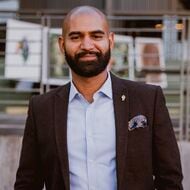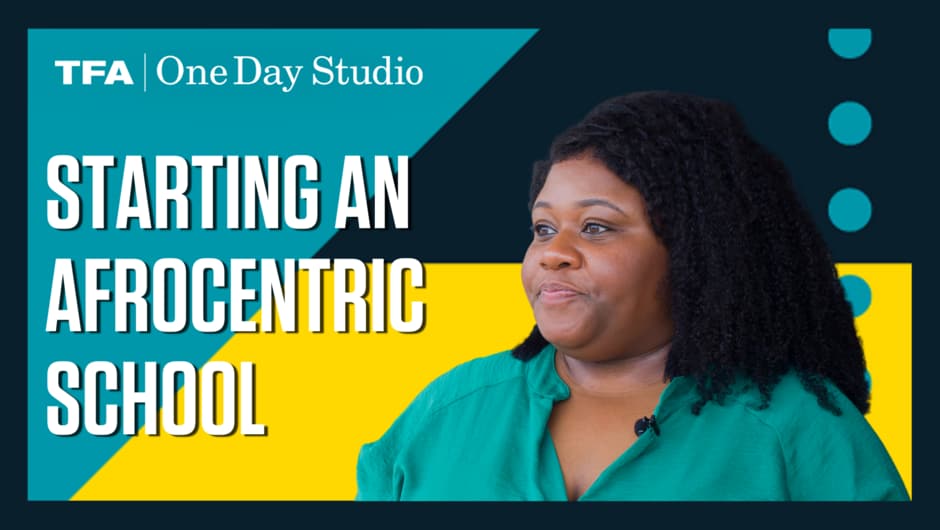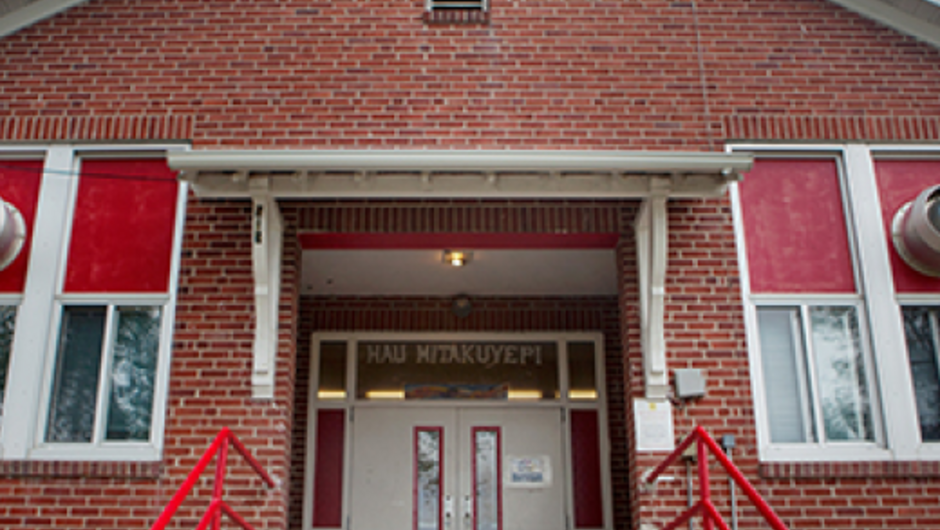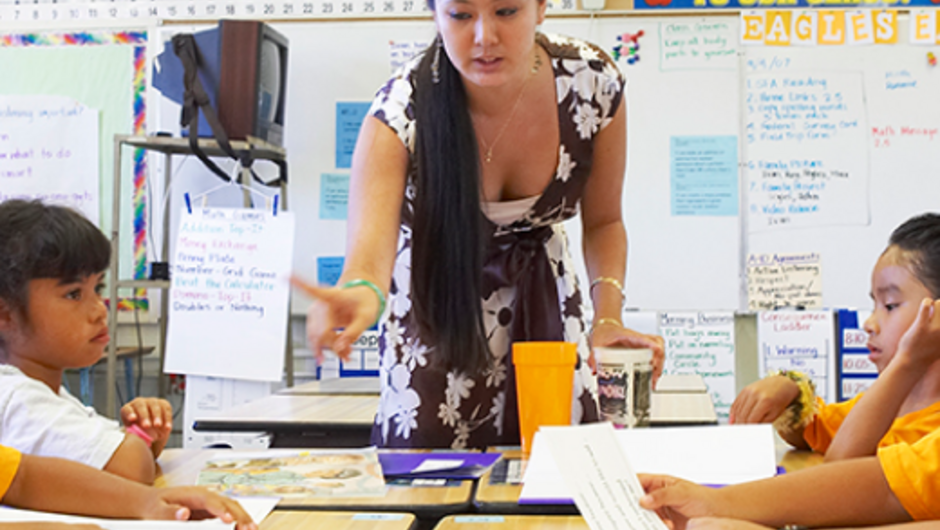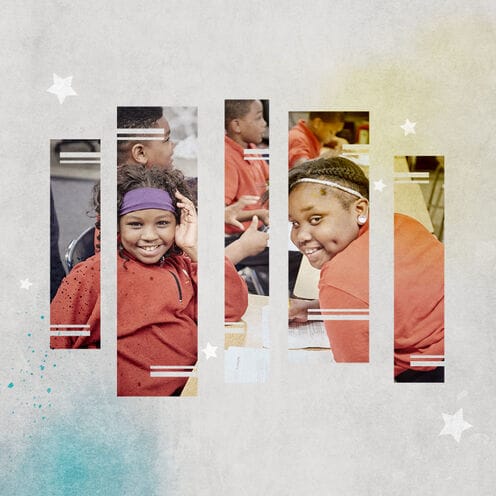
How Afrocentric Lessons Teach Black Kids to Love Themselves
Teaching whitewashed accounts of history and the creation of modern civilization reinforces notions of white supremacy for students of all backgrounds.
There is an African proverb that states, “Until the lions have their own historians, the story of the hunt will continue to glorify the hunter.” That quote in its essence is the reason why I became an educator, and it is the entire purpose behind the work I do as an educational consultant.
As a student, I remember learning extensively about the myths and legends of ancient Greece and Rome, the feats of Alexander the Great, the accomplishments of the Enlightenment thinkers, and the bravery of our Founding Fathers as they fought the American Revolution. Throughout it all, I remember thinking to myself, “What does this have to do with me? Where are all the Black people?” For the majority of my elementary and secondary education, the only time I was able to experience Black people in school was when they were picking cotton, being whipped, or were one of a few recurring civil rights activists discussed during the shortest month of the year. I figured that’s all there was.
It was not until my matriculation through Morehouse College that I realized a great injustice had been done to me by my teachers and my school district. At Morehouse, I learned and realized the extent to which, as poet Dudley Randall put it, “The history taught in our schools is a false history, a history of lies, omissions, and distortions.”
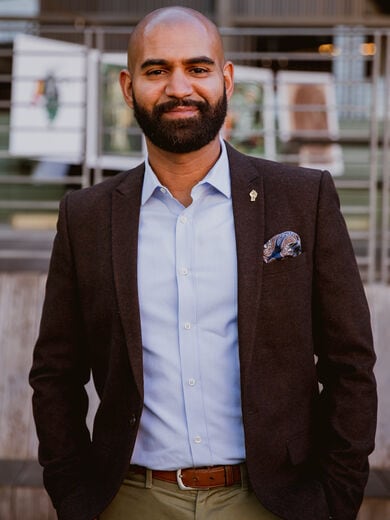
My experience was not an isolated one. Throughout this country, the stories of people of color have not been and still are not being told. In their stead, a one-sided, whitewashed tale has been inserted. This carefully redacted story puts on a pedestal those who are responsible for the enslavement, death, rape, degradation, subordination, and discrimination of hundreds of millions of people throughout the history of the world. Simultaneously, this same story relegates all people of color, but specifically people of African descent, to the status of cultural and historical phenomena, having materialized in this world with no background, no accomplishments, and no civilization of any kind.
Well, what effect does this rendering have on those who hear it? For one group, it instills in them a sense of pride and accomplishment. It shows them what they can do and what’s possible because they have seen examples of it. For the other group, it creates a sense of shame; their sense of self depreciates, and their appreciation and respect for their own racial group turn contemptuous. They develop what Chike Akua, an author and assistant professor of educational leadership at Clark Atlanta University, calls “cultural amnesia.” They do not know who they are, where they came from, or how they got here. When you don’t know who you are, you are forced to become someone else, take on a foreign identity, adopt a foreign culture, and admire a foreign history because you don’t know your own.
“The decision to choose educational liberation over maintaining the status quo was like a weight being lifted off of my shoulders by my ancestors.”
In 2002, when I became an educator, teaching sixth and seventh grade social studies, I immediately set out to make sure that I taught my students the truth about who they are and where they come from. However, from the outset, I realized that was not going to be as easy as I thought it would be. Standing in my way was the state curriculum, a massive document that outlined exactly what (and sometimes how) a teacher was supposed to teach. When I examined Georgia’s curriculum, which I came to find out was almost identical to a host of other state curricula, I found that it contained few references to the accomplishments of Africans or African Americans (or any other people of color for that matter) nor their contributions to global society besides the typical mentions of Martin Luther King Jr., Frederick Douglass, Rosa Parks, and Nelson Mandela. So, I was faced with a decision to make: I could teach the curriculum as it existed and prepare my students for the end of the year state test, or I could fill in the gaps that existed within the curriculum with information that would deepen my students’ understanding of their identity and reconnect them with a history and culture that had been stolen and kept from them. Needless to say, I chose the latter.
Get more articles like this delivered to your inbox.
The monthly ‘One Day Today’ newsletter features our top stories, delivered straight to your in-box.
Content is loading...
The decision to choose educational liberation over maintaining the status quo was like a weight being lifted off of my shoulders by my ancestors. I was now able to give myself permission to color outside of the lines set forth by the state. In class, I taught lessons on the greatness and influence of the Kemetic (often referred to as ancient Egyptian) civilization. In those classes, students designed and built pyramids like their ancient African ancestors did. I allowed my students to choose their own African names that we used in class—monikers students chose based on their meaning and how they saw themselves. To this day, some of my students still use their African names, and to my knowledge, at least one of them has officially adopted it as her legal name. We explored pacifist leader Mahatma Gandhi’s and MLK’s notions of boycotting. Then students applied those concepts to their own communities and boycotted products, people, and businesses that they felt were harming their neighborhoods or their people. I taught them about the history of African Americans in the media, starting with minstrelsy and “blackface,” and spanning all the way through modern-day celebrities. This allowed students the chance to analyze their favorite musical artists and compare them to the top performers at the turn of the 20th century.
Over the course of 20 years, I was able to expose my students to concepts and information that most people don’t learn until they get to college—and even that isn’t a guarantee. That should not be the case. A Black child should not have to wait and depend on a prohibitively expensive endeavor like college to finally be exposed to the truth about their history. Culturally responsive, Afrocentric, and African-centered curricula should be standard in today’s public and private schools, but unfortunately they are not. This is true for several reasons: 1. Most state and local education boards are not that liberal and are disproportionately white; 2. It is not a priority for many schools that have more freedom over their curriculum choices; and 3. There are not that many people out there writing them.
“A Black child should not have to wait and depend on a prohibitively expensive endeavor like college to finally be exposed to the truth about their history.”
It is that last point that has caused me to shift the work I do in education by leaving the classroom and focusing my gaze on a wider impact through professional development and curriculum writing. Most recently, that work led me to connect with Ebony Payne Brown (Metro Atlanta ‘06), the leader of PEACE Academy charter school in Atlanta, Georgia, and to help her design an Afrocentric curriculum that she has envisioned for her scholars. Ms. Payne Brown knows that most state standards do not give a full and accurate depiction of the accomplishments and contributions that people of African descent have made to all subject areas (not just social studies). That means students from all backgrounds are receiving a whitewashed, Eurocentric narrative about who is responsible for the creation and progression of both ancient and modern civilization, which upholds the notion of perceived white supremacy and dominance.
This affects all students, but specifically Black students because it reinforces the negative stereotypes that they are ingesting from media and society in general on a regular basis. Black students need to see the greatness and beauty of where they come from so they can dream of the possibilities of where they might be able to go.
The opinions expressed in this piece, and all others in our Opinion section, represent those of the authors and do not necessarily reflect the views and opinions of the Teach For America organization.
We want to hear your opinions! To submit an idea for an Opinion piece or offer feedback on this story, visit our Suggestion Box.
Sign up to receive articles like this in your inbox!
Thanks for signing up!
Content is loading...


